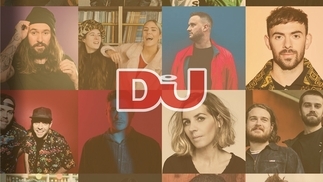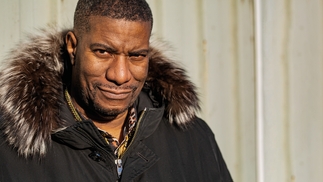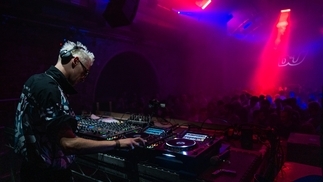Solardo: DJ Mag UK cover feature
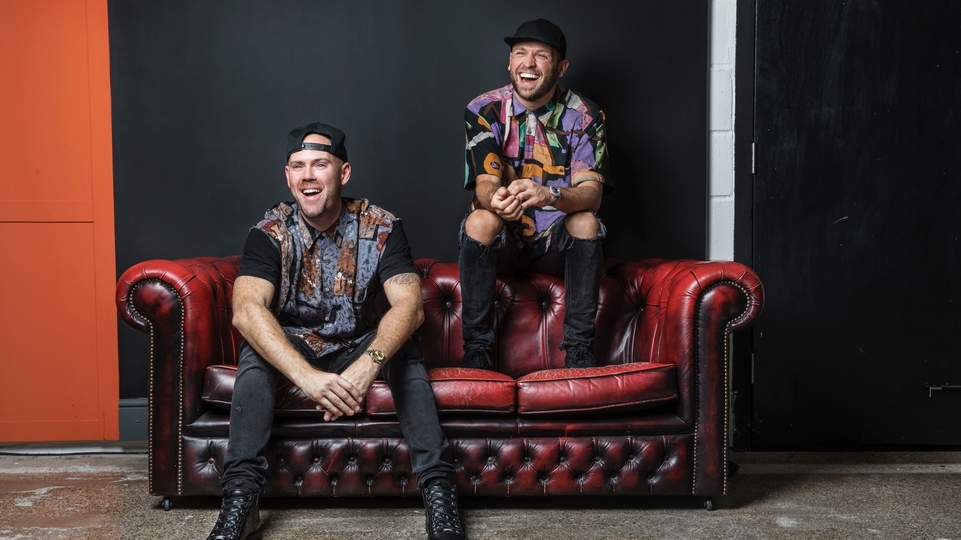
Last year was an incredible year for party boys Solardo. Playing over 200 high-profile gigs, traversing the globe like a well-oiled machine, the Manc lads rapidly shot into the upper echelons of the scene — converting everyone they came into contact with via their fun-time positive vibes, rolling tech-house bangers and loud shirts. After scooping the Best Duo gong at our Best Of British awards in December, DJ Mag's editor Carl Loben meets up with the pair to find out more...
The Solardo boys are standing by the canal in Haggerston, east London. They’re dressed in sharp black suits and bowler hats, a far cry from their customary attire — chiefly characterised by a succession of loud, usually disgusting shirts — but they seem to be revelling in the moment. Posing and clowning around for photos, passing pedestrians and cyclists seem to half-fear that our anti-heroes are going to push them into the canal. This is perhaps aided by the fact that, with their long umbrellas and James’s sinister false eyelash, they more resemble a couple of droogs from iconic British film A Clockwork Orange than old-fashioned British gents straight outta sixties TV show The Avengers.
DJ Mag asks them if they’ve seen A Clockwork Orange. “I’ve seen a bit of it, and I remember there was a scene in it and I actually switched it off when it got to that scene,” says James. “It was pretty dark.” “I’ve seen it, yeah,” says Mark. “I’m looking like a droog just now?” asks James. “I don’t know anything about it, but off the back end of this I am 100 percent going to watch A Clockwork Orange properly.”
In the film, directed by Stanley Kubrick and based on the dystopian novella by Anthony Burgess, the gang of droogs — led by Alex, played by Malcolm McDowell — are into violence, sexual assault and classical music. “Doesn’t sound like us at all,” says Mark. “Definitely not,” adds James. The lead droog Alex gets put into an institution and given aversion therapy to avert immoral behaviour and violence, DJ Mag explains.
“Well, I could do with that, but not for violence,” James jokes. “For getting too smashed.” We’re hanging with the boys because Solardo have capped their meteoric rise over the past year by scooping Best Duo at our Best Of British awards — polling higher than Sasha & Digweed, Dense & Pika, Dusky and Bicep in the process.
The honorary third member of Solardo, Dave the dog, has been left back in the photography studio around the corner while the guys lark about by the canal. Dave is a type of bulldog, so the guys thought he was perfect for the Brit-themed cover- shoot, although it turns out he’s actually a French bulldog, which put a slight reverse Brexit spin on proceedings...
In a pause in the shoot while photographer Dan Reid waits for another bemused dog-walker to stroll past, DJ Mag asks James what being British means to them. “I’ve never really known much else,” he says. “I’m not Columbian, even though I’d like to be for various reasons. But yeah, we’re quite proud people, and it’s an absolute honour to do this Best Of British thing for DJ Mag. Thank you dad, massively.”
Gotta look after my boys, innit...
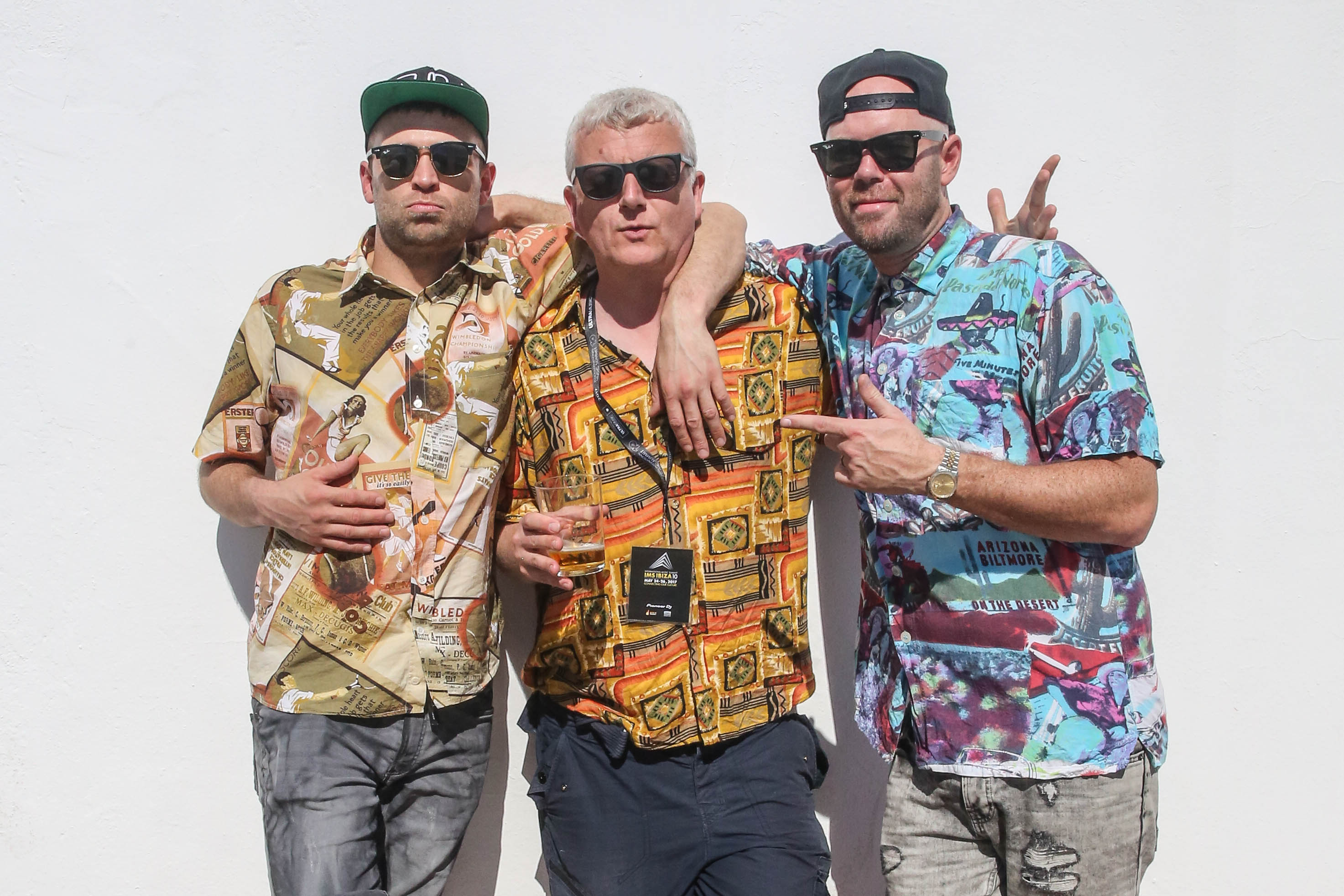
SOLARDO’S DAD
The thing about your hack pretending to be their dad came about during Miami Music Week early last year. Solardo had a couple of big releases at the tail-end of 2016 and then were voted to receive the Breakthrough DJs gong at the end-of-year Best Of British awards. Then came Miami. As this writer was heading out of the hotel to the DJ Mag party at the Shelbourne in a loud shirt, a certain cheeky young scamp — Iain McGoldrick from the advertising department — quipped, “Oh look, it’s Solardo’s dad!”
Despite the fact that I’m only about a decade older than the Solardo guys, give or take (ahem), I decided to play along. I like mucking about at parties, after all. So at the DJ Mag daytime event I was pretending to be their dad — keeping an eye on their misbehavior, etc. — and we kept it up all day. The boys were introducing me to strangers as their dad, we were having ‘father and sons’ photos taken together, and all sorts. It was a right laff. They were sound as a pound, and we hit it off immediately. Top boys. They also rocked the party, by the way.
A few days later, we hung out again at the Dirtybird party in Miami (where they went back-to-back with Skream and nearly broke the internet on the DJ Mag live stream), then our paths crossed again at Glastonbury in June, and then at Hï Ibiza late in the season when they won Breakthrough DJs at the Ibiza DJ awards — and the ‘dad’ thing has continued on Twitter too. But it’s through sheer hard work and determination that the guys have got to where they are today — not from any artificial nepotism.
“2017 was a crazy year, just a little bit,” says Solardo James, when we retire to a nearby pub and Dave the dog takes up residence under the table. The DJ Mag photoshoot over, the boys have changed out of the Moss Bros gear we’ve hired for them and back into their scruffy, ripped black jeans and rubbish shirts. “It was our first proper festival season and our first proper Ibiza season.” He starts talking about how 2017 was a massive step up from 2016, Mark reinforcing the point with specific detail about dates. “We did 14 shows in Ibiza,” Mark recalls. “Most of them were in midweek, which is a great thing about it — you can do more shows. By the end of the season we were a bit tired — we felt like going on holiday. We’d do midweek Ibiza, go somewhere else on the Thursday, then do Friday, Saturday, Sunday — and then back to Ibiza.” “Absolutely relentless” says James.
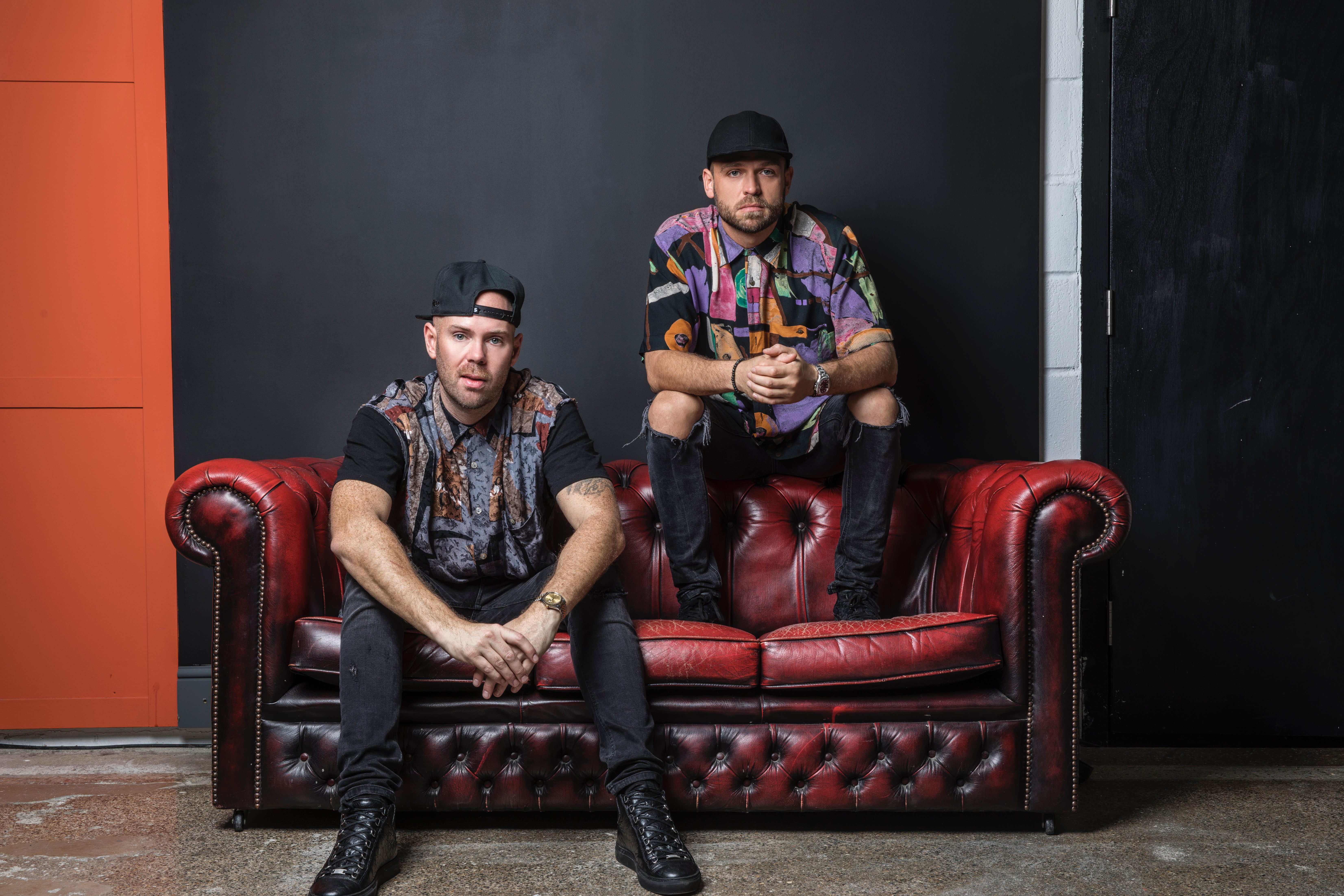
As the year drew to a close, Solardo had played approximately 200 shows. That’s four a week — in different cities, and often different countries each time. Their rise has been meteoric, and in a comparatively short space of time, too. People seem to love ‘em. Why do they think it’s gone so mad for them? “Cos we’re funny?” suggests Mark. “No, but we try not to take ourselves too seriously. I think people can relate to us a lot more, cos we’re approachable and down-to-earth. People look at us and can relate to us and get into us on a level.” There’s no doubt that people see the Solardo boys as One Of Them. They aren’t aloof, untouchable — they’re salt-of-the-earth, sound geezers who seem just like the clubbers they play to every week.
“I think people usually want to be able to feel that you’re like them, and not on a different pedestal,” thinks James. “I’m not gonna mention any names, but some electronic artists are unapproachable — you could never speak to them or contact them by email, or they’d never reply to you on social media. They never interact. Whereas if anyone’s ever monitored any of our social media over the past 18 months or so, we’re the polar opposite...”
Alongside funny tour date artwork (faces squashed up to glass) and a plethora of videos from gigs, the boys are forever retweeting sarcasm or praise from fans, trolling hate gures like Katie Hopkins, or sharing dubious memes. In an age where most big DJs have their image protected by a coterie of advisers — their words sanitised, their voices muted — Solardo’s approach is refreshingly off-message.
“I tweet Donald Trump quite often, but he never seems to reply,” says Mark. “And Nigel Farage — I tweet him regularly. I don’t think he appreciates the ‘I bummed a puffin’ photograph I always include, however. About once a month I do that.”
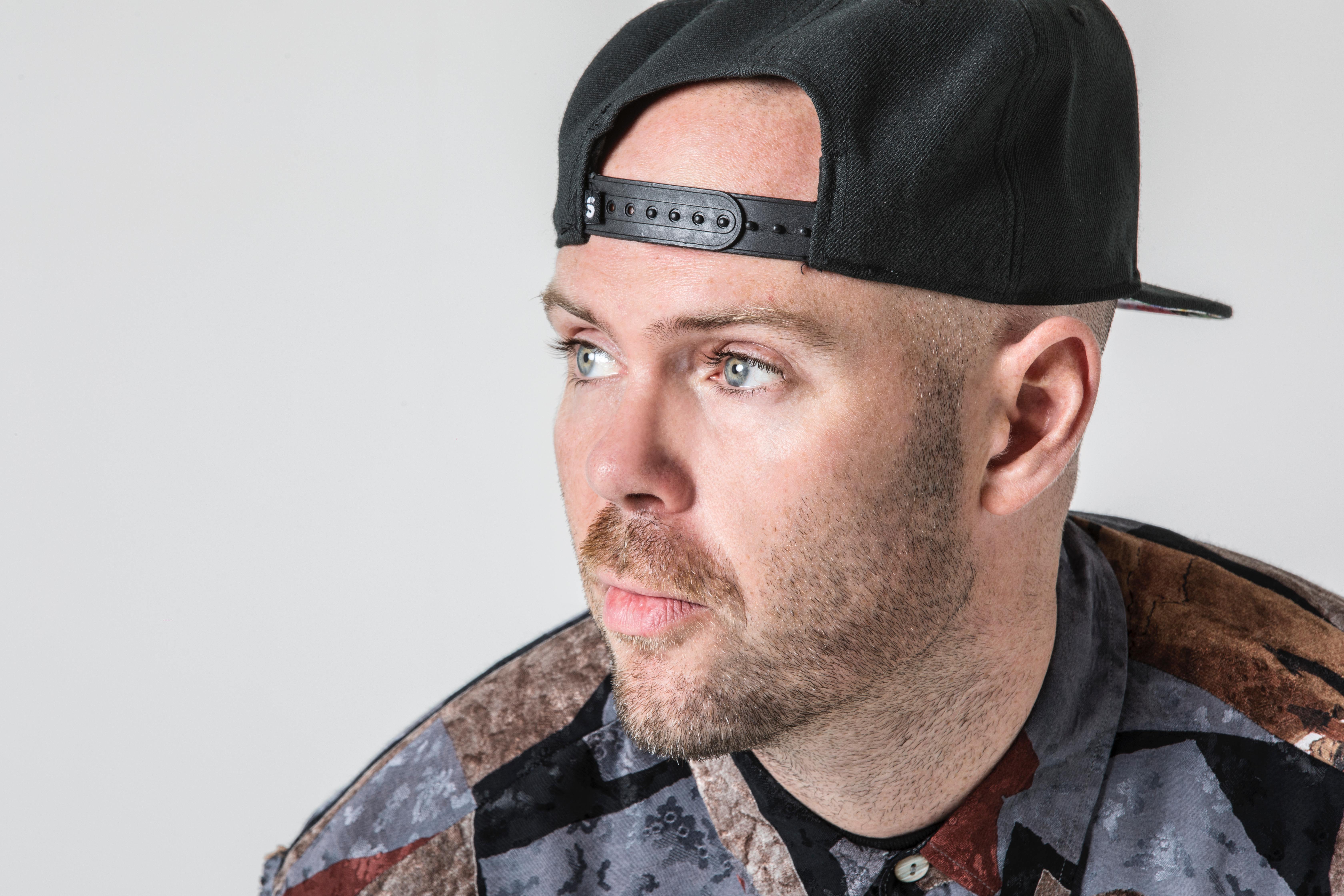
HARD GRAFT
The guys have risen rapidly up the tree in the past 18 months, but it hasn’t been a uke or due to lucky chance. They’ve worked damned hard to get to where they are today, and their history and work-rate should be an example to all budding DJ/producer types wanting to make it in the game.
The duo first met each other as long ago as 2001 when they had adjoining shows on a pirate radio station in Manchester. “He used to do dubstep and was involved with a group called Virus Syndicate,” recalls James. “He was called MRK1 (pronounced: Mark One) at the time. I was just a hobby DJ doing garage in my back bedroom.” “That was quite early on in dubstep,” adds Mark. “I started doing MRK1 stuff in 1999, in 2000 I started doing it where it actually meant something — with tunes getting released.”
Mark has a long and varied history in production. The first gig he ever went to was The Prodigy at the Apollo in Manchester in his mid-teens, a show which James also attended, and his first raves were happy hardcore ones before gravitating to jungle, drum & bass and then garage.
“I was making drum & bass originally — jungle — and wasn’t getting anywhere,” Mark elaborates. “Oris Jay from Sheffield was a good friend of mine, and I was sending tunes to him saying, ‘What can I do to make these better?’ He’d say, ‘They’re good tunes Mark but I can’t really do anything with them cos I’m not in that circle — why don’t you start making this dark garage stuff?’ At first I wasn’t really interested cos I just thought garage was all happy and stuff, but when he showed me what he was doing I did do it and he started playing it at a club called FWD>> (pronounced Forward) at Plastic People [in London]. Actually, it was at Velvet Rooms where it rst started. Then I started going down there, and I just got involved in the whole movement really. And then dubstep came around.”
Mark was there at the birth of dubstep. After releasing a few early grime tings in the early noughties, he teamed up with Plastician and Slaughter Mob to release the ‘Grime’ compilation album on Aphex Twin’s Rephlex label in 2004. This, and the following one by Kode9, Loefah and Digital Mystikz, was hugely in uential on the emerging dubstep sound that was coalescing around the Big Apple record shop in Croydon and at nights like Filthy Dub (also in Croydon) and FWD>>. Simultaneously, Mark hooked up with the Virus Syndicate crew in Manchester and started releasing tracks and albums on Mike Paradinas’ superb Planet Mu label and their own Contagious Recordings.
James, meanwhile, moved away from music and relocated to Spain in 2002, travelling around for a few years before returning to Manchester in 2006. He soon got a new girlfriend, and after a whirlwind year she became pregnant and had their first kid. “So my journey involves going down more of a family route — two children, mortgage, all that carry-on, and then things didn’t quite work out,” says James. “I went back on the party scene, and was a bit of a lost soul.” Music had been his main passion growing up, so he started trying to get involved again — and then bumped into Mark, who had been plugging away for years with the dubstep and Virus stuff. Although Mark was one of the scene’s prime movers, dubstep had nose-dived after being eclipsed by the noisy Skrillex-style brostep sound and crashing and burning Stateside. Mark tried a bit of trap and even some pop stuff, but after meeting up with James again and going into the studio they decided to try turning their hands to house and techno together.
Mark admits that he didn’t know too much about four-four sounds at first, and had always associated house with the more commercial Spinnin/Armada end. “But when I heard what the likes of Jamie Jones was playing — with the darker sounds — it was quite reminiscent of the early dubstep days, but with a four-four beat,” he says. “So I thought, ‘Let’s have a go at this’.”
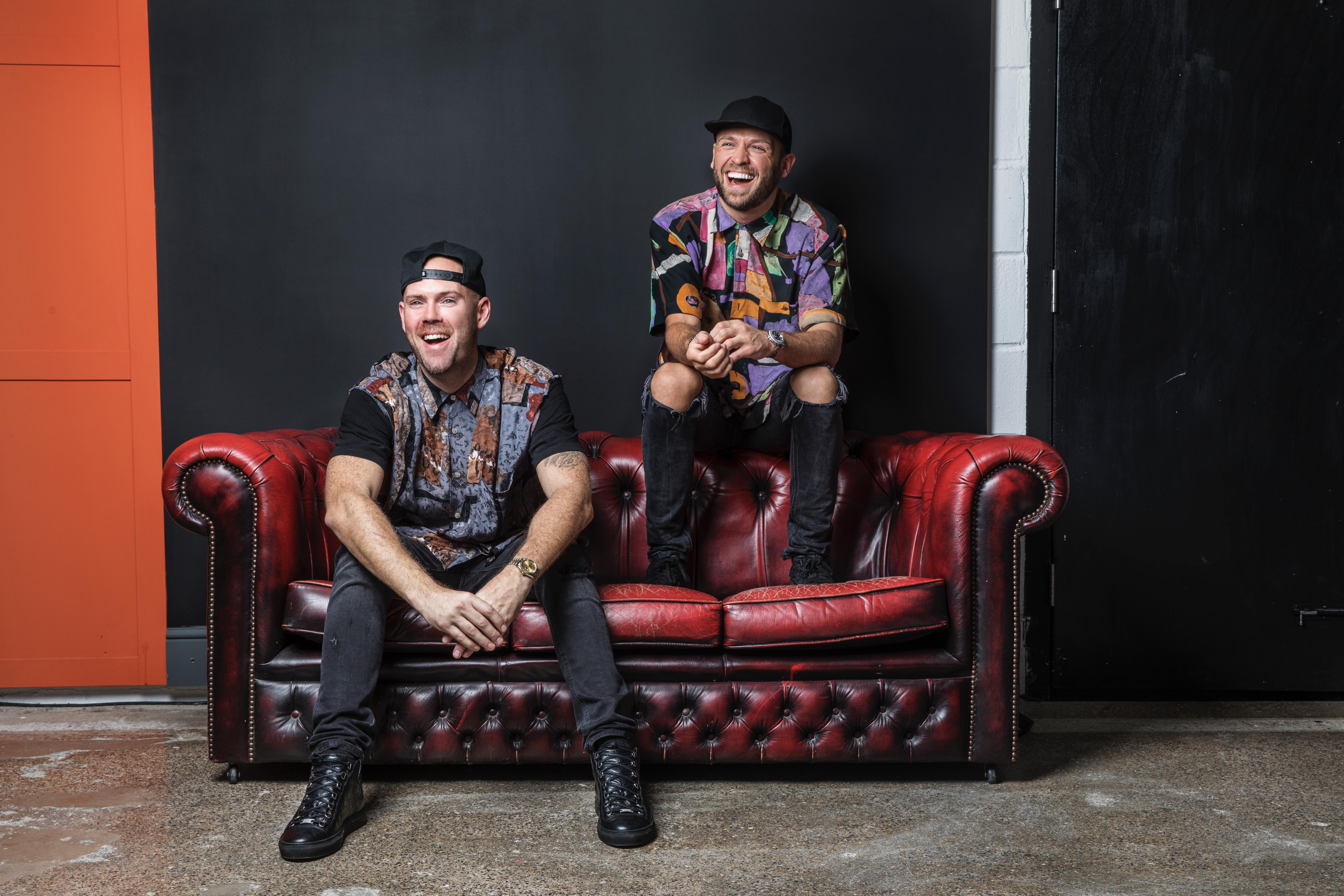
ACID-INFLUENCED
When first teaming up, they experimented a lot to try to find their own sound. “There’s still tracks on our SoundCloud that go from the hardest industrial techno to experimental out-there stuff and acid-influenced things,” says James. Mark relished experimenting in these new genres at first — but the guys were broke. “We were surviving on whatever we could,“ James recalls. “There’s a café quite close to our studio which does a Hot Special for three pound each. We literally, religiously, lived off it for a long time. We was down to having one Hot Special per day.”
“We did eat other meals as well — we were on Pot Noodles too!” Mark adds. “But literally, before it all started taking off, I was down to my last two hundred pounds in my bank account. But we were so persistent, thinking ‘This’ll work’. We’d literally spend up to 17 hours a day, seven days a week... My girlfriend at the time, who’s now my wife, wasn’t living in England — she lived in Dubai — so we didn’t get any stress.” As part of the quest to find the Solardo sound, the boys visited lots of studios owned by various friends and acquaintances. Mark, who has always been self-taught, literally spent a year sitting in the studio continuously, pulling all these different methods of working together. “From working in different genres of music and seeing how they work, to stand out from other producers you’ve got to go that little bit further,” Mark adds at rapid-fire pace. “This, for me, was the last time as a producer to really have the opportunity to push myself out there. I’m not that young — 35 — but this was potentially my last chance to make it work. So I thought I can’t be doing a half-hearted attempt, saying ‘This tune’s ok’. The hardest thing in producing is consistency — having more than one big track.”
After their early acid-infused material, the Solardo sound started evolving. “We used to listen to the most forward-thinking DJs within our scene, and we noticed that the sound changed to become quite rolling, a more warping basslines sorta sound, so obviously our sound changed and we stayed current,” James says.
Only once they’d built up a whole arsenal of finished tracks — 37, to be precise — did they start sending any out. They hit up promo emails from DJs’ artist pages — without much success. “There was a period of months where we were getting absolutely nowhere,” says James. “No one was getting back to us, even lower level DJs. So we thought, ‘OK, what’s the next way we can get music to people?’ We started running small events. And we focused on booking the acts where we thought we’d like them to play our music.” They booked people like Matt Tolfrey and Riva Starr for their small-scale parties, and even though they sometimes lost money they did, for instance, get a Snatch! EP at a later date as a result of booking Riva. Meanwhile, James was travelling to festivals with a pocketful of USBs with Solardo tracks on, fighting to the front of the crowd to give them to DJs. “I remember one time I actually jumped the fence at Albert Hall to get to Jamie Jones, and I give him the USB and said ‘Please listen, please listen!’,” James remembers. “And it’s crazy to think that a year or two later he was signing our music. At the time we were just trying everything.”
They decided on their name before punting out any tunes, and to avoid any preconceptions they kept their real names off their Facebook and SoundCloud pages at first. DJs Mark Jenkyns and Steve Lawler were early supporters, dropping Solardo tracks in their sets, and when Mark hit up his old dubstep pal Skream with their remix of Nathan Barato’s ’Let Me Do My Thang’ at the end of 2015 — sorted out by the Kaluki camp — he immediately played it on his Radio 1 show. The phone rang literally ten minutes later from the Underground DJ agency, which they quickly signed up to.
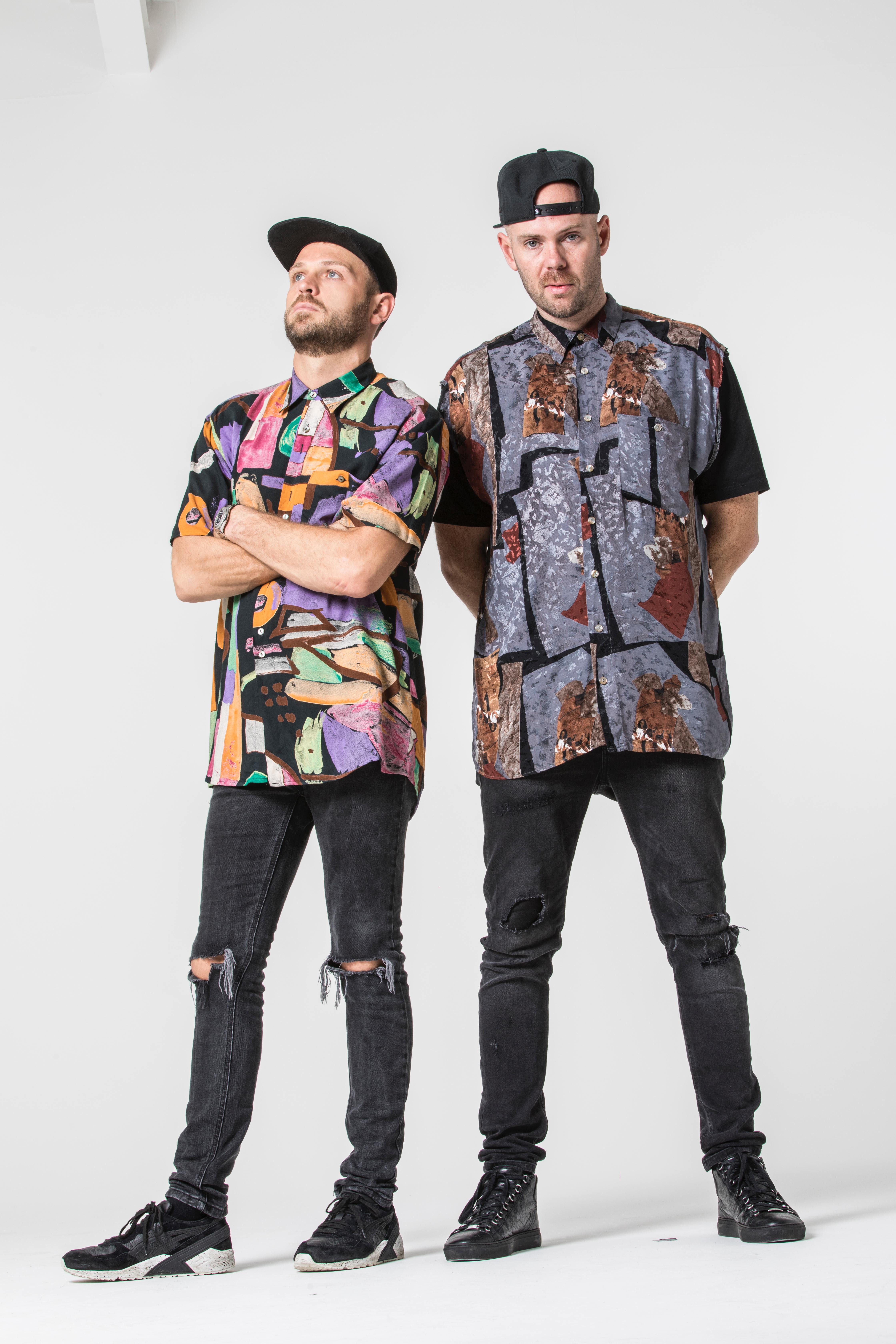
VIDEOS
Another way they got their name out there in the early days was filming their own home-made videos — on their phones — of other DJs playing their tracks. “So when Mark Jenkyns or Richy Ahmed or somebody had downloaded any of our music, we used to travel to the festivals — wherever they was playing around the country — to see if they’d play it,” says James, remembering the process as almost an obsession. “I remember a really pivotal moment was when Jamie Jones went back-to-back with Richy Ahmed at Mint Festival, and they played ‘Acid Rocks’. We got the best footage of it EVER, and these videos for us... There was another one when Skream played ‘Dance The Disco’ at the Warehouse Project about two or three years ago.”
They’d put these videos on their Facebook page, sharing them into all the house music groups they could find, and started making their own vids using funny old 1990s rave footage. Mark edited all the videos that they did back then — and still does today. People started taking an interest. Skream signed ‘Acid Rocks’, ‘Dance The Disco’ and ‘Control Time’ to his label Of Unsound Mind, and suddenly they had their first release. “All of a sudden, as soon as people saw Skream — a respected act within the industry — supporting the music, we literally signed five or six EPs within a matter of three or four weeks,” James explains. “We signed the Viva EP, the Snatch! EP, the Roush EP, the MadTech EP. The MTA EP — Chase & Status’ label — was a little bit after, but we signed four or five EPs in no time.”
Having all these releases coming out at once — flooding the market, effectively — was quite a risky strategy, but it paid off for Solardo. Combined with working-it on social media, they started getting better and better gigs, but still invested money back into boosting posts. “We were just thinking about the end-goal,” says Mark. “You’ve got to believe in what you’re doing. We weren’t that confident at first, but after a while when it all started coming together...” James starts talking about how it’s just in their natural characters to look like they’re enjoying themselves when they play, rather than be po- faced and looking down all the time. “He was gonna say cos Northerners are more friendly, but he thought he’d be politically correct!” laughs Mark. “It’s just natural, it’s probably one of the best jobs in the world, so why would you just stand there and have a shit time and act like you don’t give a fuck?”
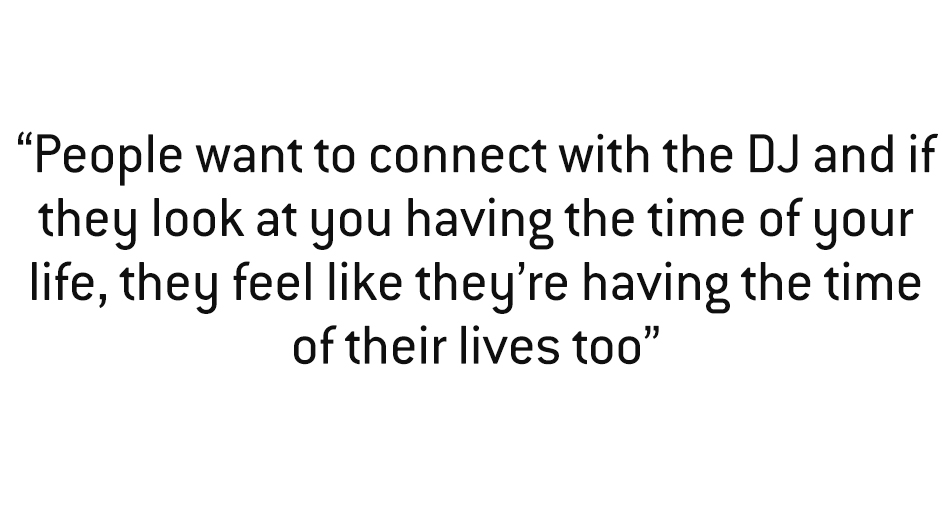
“I feel that engagement with the crowd is a massive factor,” James continues. “People want to feel that they’re with you in the room. A lot of people that go to raves and dance and have the time of their lives are people who feel that they want to connect with the DJ, and if they look at you having the time of your life, they feel like they’re having the time of their lives too. If a DJ turns up and puts his head down and is not very animated — even though I’m not knocking anyone else in the scene in any shape or form... People connect with you a lot more if you engage.”
Their home town, Manchester, has a lot to answer for. Some of the best music acts of the last 50 years have emanated from this northern powerhouse — from indie bands like Joy Division and The Smiths through mad-fer-it indie-dance combos like the Happy Mondays and Stone Roses to electronic acts like 808 State, A Guy Called Gerald and the Chemical Brothers. James starts talking about being a proud Mancunian, and how building up a following in Manchester was important when they were first starting out. “We have a studio in central Manchester, and we used to bring every single person from the club back to the studio and party with them until...” he says, trailing off.
“We had an after-party once with the biggest line-up ever — Rudimental, Jamie Jones, Patrick Topping, Richy Ahmed, Route 94...” Mark adds. “What we used to do was go out and then try to get as many people physically as we could back to the after-party, and then me and Mark used to DJ,” James continues. “To get people to know who you are... People would come back to the after-party and think, ‘Oh shit, these guys are actually really good’. People became friends with us, and then they’d support you partly because they were your friend.”
After recoiling in horror at another outrageously smelly fart that Dave the dog has done under the pub table, they talk animatedly about bringing randoms back from the club to party amongst all their expensive equipment, but how this wasn’t a contrived process at all in building up a local following. “It was a natural progression of us loving the party,” says James.
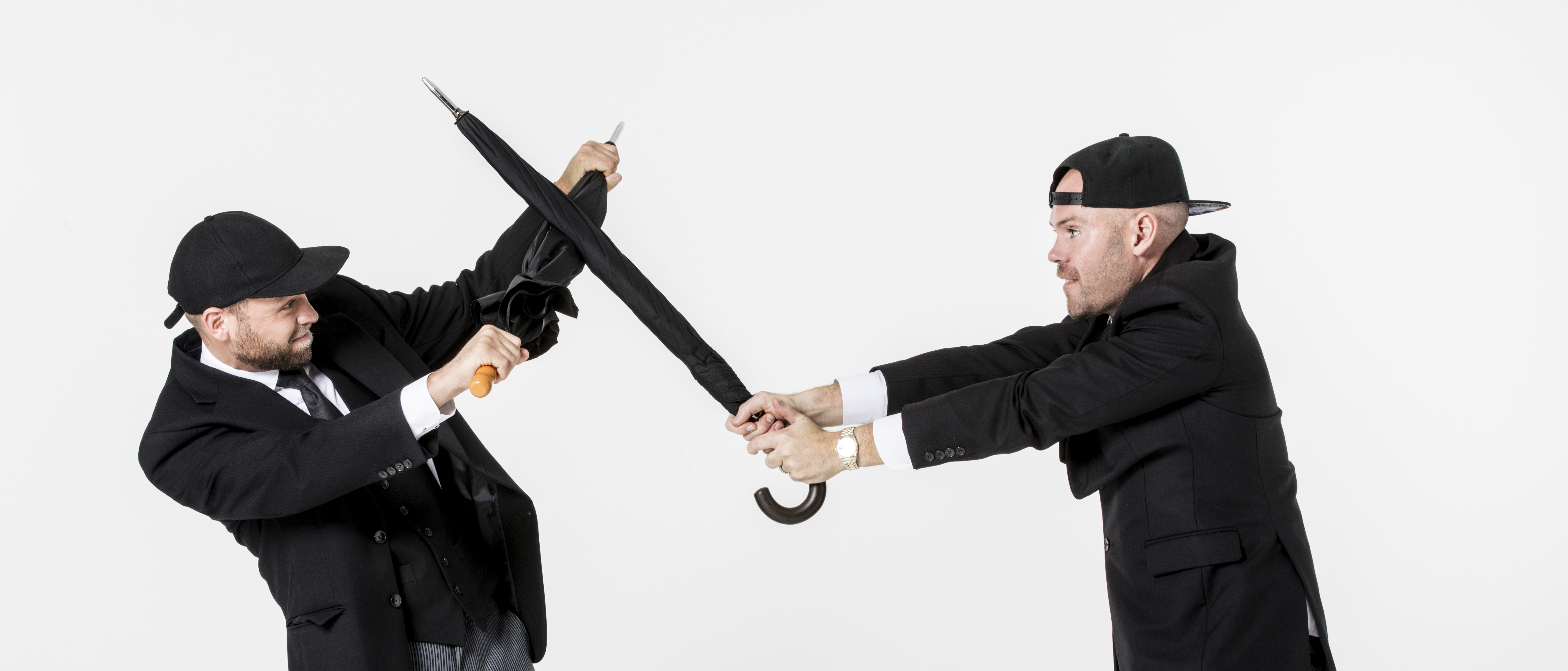
SESSIONS
Once they started getting a little bit well-known around Manchester, they started their own Solardo Sessions nights in the city. Free at first at small 150-capacity venue the Whisky Jar, tickets via Skiddle were snapped up in a jiffy, so they gravitated to bigger venues like Joshua Brooks — 350 capacity — and then Hidden (700). They had some secret guests like Skream play, and when Sacha Lord-Marchionne from the Warehouse Project came down he was impressed with the crowd they’d pulled — seemingly out of nowhere. “We were selling out these venues ridiculously quick, we even had ticket touts outside selling tickets for £150,” Mark says.
“I remember speaking to Sacha and he said, ‘I love the fact that everybody’s got these bright shirts on’,” continues James. “Cos it was a summer thing we encouraged people to wear these flowery shirts, and literally 80 percent of the crowd turned up in these shirts — even down to all the girls that came.” Ah yes, Solardo’s shirts. When they were at an event making a home-made video, Mark said to James: ‘‘Here we are, I’ve got the shittest shirts possible.” They started calling them ‘shit shirts’ and when other people cottoned on, they went with it.
“Because we wore these shirts — there’s been some good ones, and there’s been some ones that were absolutely atrocious — people thought, ‘This pair of dicks don’t take themselves too seriously’, because if you did you wouldn’t wear something like this,” James reckons. “We’ve worn some bad stuff. And we’ve worn some good stuff.” “I think we’ve got it down to a tee — it’s half cool now,” says Mark. “But at one point it was like, ‘Let’s wear the shittest shirts we can find...’”
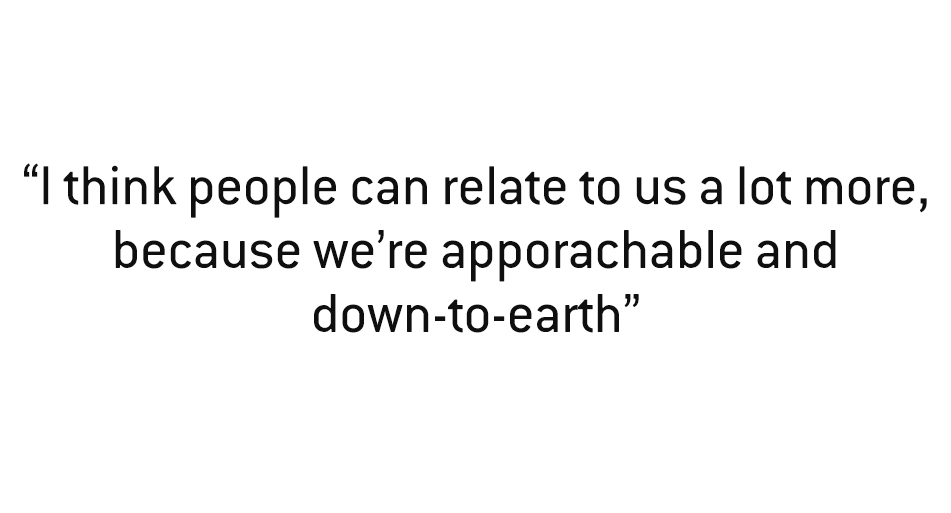
“We used to go to vintage shops and find the most embarrassing stuff that yer grandad wouldn’t have worn,” says James. “Or your great-grandad.” “We still do that now, actually,” Mark half-jokes. “Do we feel like we have to wear the shirts all the time now? We do always wear ‘em now, yeah.”
“It got to the point where it feels like almost a uniform,” says James. “I can’t imagine us turning up to gigs without shirts on now. I think it’d just feel weird that we didn’t wear them.” The guys recount how they have to take 20 shirts with them if going on tour (“at least one per gig”), but DJ Mag wants to know if they iron them before each show? “I do,” says Mark.
“It all depends on the circumstances, where you’re coming from,” says James. “Many a time I’ve took one out from being screwed up in the bottom of my rucksack and put it on. But where I can iron ‘em, yeah. Although sometimes I don’t.”
Another landmark in their relatively rapid rise to fame was when they released ‘Tribesman’ — with its catchy ethnic chanting — on Hot Creations. “We always wanted to release on that label, it was the main label we aimed at to try to get a release on,” says James. “I remember vividly when we got an email back off Jamie Jones, saying he was gonna take the tracks... Had he listened to the USB from two years before? No, had he heck! [chuckles] I think he must get passed and thrown that many...”
James starts talking about before ‘Tribesman’ was signed, and Richy Ahmed — A&R for Hot Creations — had been playing Solardo cut ‘Work That Shit’. Jamie Jones nearly signed that record, but didn’t. Determined not to be beaten, the guys sent him ‘Tribesman’ and were ecstatic when Jones emailed back to say ‘Don’t give this track to anyone else’. They immediately sent him ‘Psycho Ex-Girlfriend’ — “it was a vocal sample, by the way,” James says, wryly — and Jones told James backstage at Parklike 2016, ‘That’s the B-side’. He then got onstage in front of 15,000 people and mixed one into the other. “We got some unbelievable footage of him mixing ‘Psycho Ex-Girlfriend’ into ‘Tribesman’,“ says James. “That was another absolutely unbelievable pivotal moment for us.”
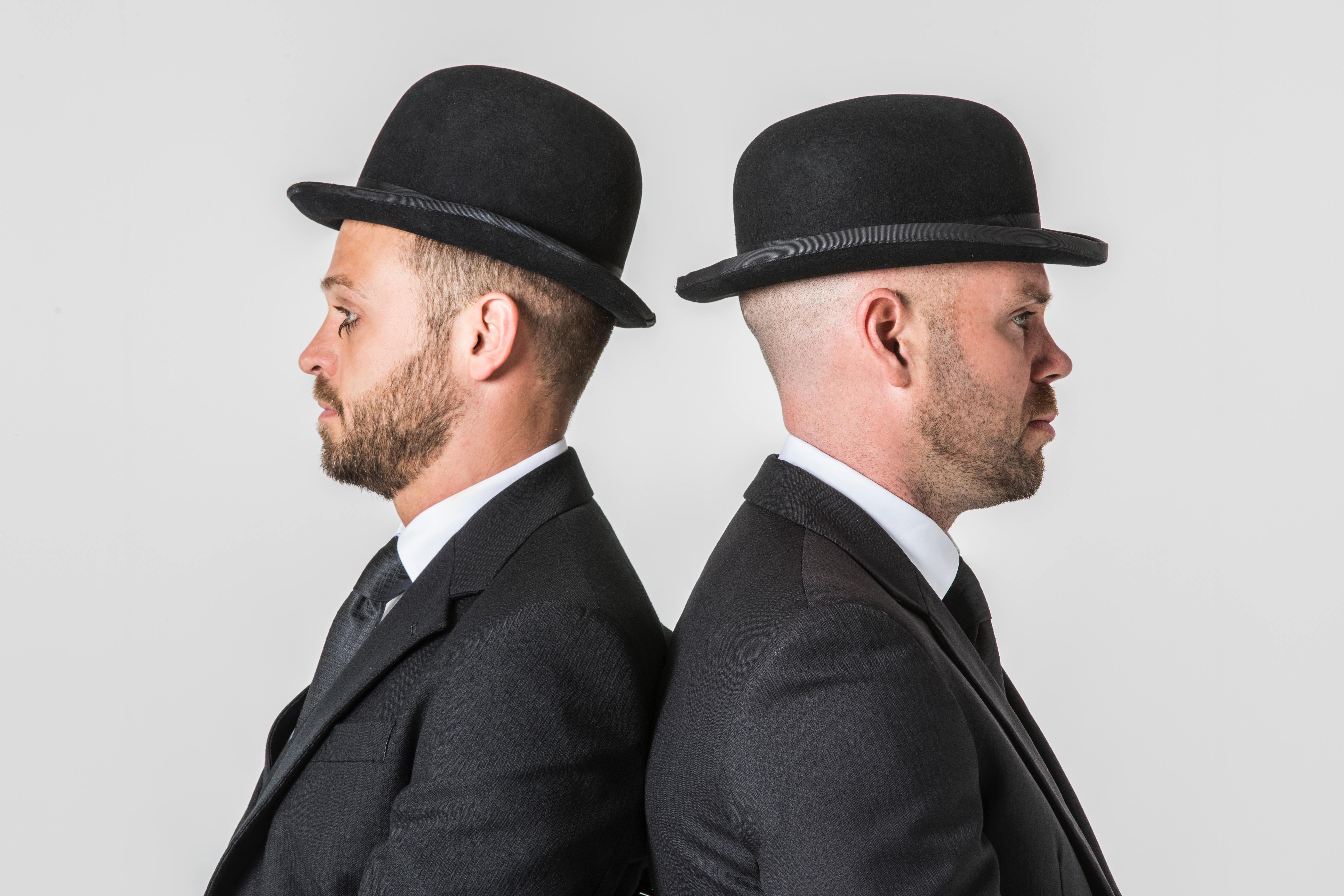
ATTACK
By this time they had new management and a new booking agent, and had set up their own label, Sola, to put out choice tunes by themselves and others. They did four gigs on New Year’s Eve 2016, Tobacco Dock on New Year’s Day at the start of 2017 to tee up the amazing year just gone, and rolled on from there. They landed an Essential Mix in the first half of 2017, which they deliberately made quite dark and long, and when the horrific terrorist attack happened at the Manchester Arena at the end of an Ariana Grande concert, the guys contributed a track to the benefit album and donated all profits from sales of their Solardo caps to the emergency fund. “We just wanted to help out in any way we could,” says Mark, serious all of a sudden.
Apart from all their massive festival shows and riotous club-nights, other highlights of 2017 for these Manc miscreants have included another Hot Creations release — ‘The Fall Down EP’ — and some big tunes landing on their Sola label. “We had our first top five with an act called PAX and a track called ‘Power’, then ‘Drop It’ by fellow northerners CamelPhat went No.1 in the Tech-House chart initially and then overall Beatport No.1 for quite a few weeks,” says James, with a degree of pride. Their pals CamelPhat, of course, have just been nominated for a Grammy for ‘Cola’.
“We play a lot of unreleased music in our sets, so it’s good to have an outlet — Sola — where people can go to actually buy that music,” says Mark.
“Another big factor for us is that we know the struggle when you’re trying to break through as an act,” James continues, waxing lyrical about one of their acts — Mason Maynard — who they’ve helped bring through. “So Sola is an output not just for established artists. We put so much music out on the label by acts from Manchester that have never had a release before.”
Solardo have been riding the tech-house wave that has seen a boom for the genre in the last 18 months. Are they happy to be described as ‘tech-house’ themselves? “Anyone who comes to see us play knows that we don’t just play tech-house — we play house music, we play classics, we play Motown at times, we play techno...” says James. “Our Nicole Moudaber & Carl Cox remix [‘See You Next Tuesday’] is techno,” adds Mark. “We’re gonna put a bit of techno out this coming year. And do quite a bit in America.”
The guys have also landed a residency at Hï Ibiza for this summer with In The Dark, and have compiled a list of festivals that they’d like to play in 2018 — many of which are chiefly techno events. They’re already confirmed for Movement in Detroit — main stage — and are also planning a secret run of shows in Manchester “to give something back to our loyal fans”. Any other goals for 2018? “Not to get smashed so much,” says James, pointing out that he’s only ever missed one gig from over-indulgent partying — something that he isn’t proud of. “How am I gonna do that? I don’t know, I think I just need to find something else in my life outside music.”
How about yoga, DJ Mag suggests, mischievously. “That’s a very, very good option — something like that, something outside music...” says James, thinking out loud. “Because I’m quite new to it, I’m still riding the rollercoaster. But it’s not about that — it’s about being super-professional, not just semi-professional. I’m having the time of my life, but everything is about balance.”
That’s my boys.

DAVE THE DOG
What has third member Dave brought to the party?
Mark: “Smelly farts, and a lot of pissing and shitting. But he’s actually quite well- known now. He’s got three-and-a-half thousand followers on Instagram so far, and he only follows two people — us and Sola record label.”
James: “There’s people who actually turn up to the rave with photos of him, and pieces of paper saying, ‘Where’s Dave?’” Mark: “Yeah, they print them off his Instagram.”
Where did Dave come from?
Mark: “I’ve always wanted to have a dog of my own, and when I moved into a new house I thought it would be cool to have a cool dog called Dave. So I got one. He’s from Bolton. He thinks he’s from France, but he’s from Bolton.”
WORDS: Carl Loben
Did you know we also have a North American print magazine? Check out our previous DJ Mag North America cover features on Anja Schneider and Monika Kruse.
